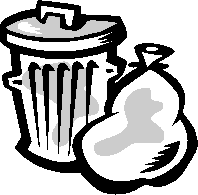Phil. 4, Critical Thinking, Prof. Dowden
The definition of
"critical thinking"
The tuition for our university is less than for schools costing twice as much. Why do you suppose that is? I suspect it's because our university saves money by paying low salaries to their philosophy instructors. Do you have a better explanation?
Now then, let's slow down here. I hope you did not read that first sentence and then conclude that your tuition is relatively cheap. The first sentence was a joke. The remark about low salaries was an intentional 'smokescreen' designed to get you to miss the joke in the first sentence.
OK, let's get serious, and start with a definition of critical thinking.
Definition of Critical Thinking: Critical thinking is when you turn off your mind, relax, and float downstream.
That's a pretty good definition, isn't it?

Not!!!
To think critically is, among other things, to be fair and open-minded while thinking carefully about what to do or what to believe. If you are a critical thinker, you will assess the reasons for and against doing something and then make your decision on the basis of a fair assessment, not on the basis of your emotions nor on what your astrology column says nor on whether the person giving you the reasons is looking you in the eye while sounding sincere.
Someone claims you should buy their old sofa. When faced with whether to accept this claim, the critical thinker doesn't flip a coin to decide, but rather weighs the pros and cons.
Thinking critically about a claim involves interpreting it correctly, accepting or rejecting it only for good reasons, and drawing reasonable conclusions from it.
A critical thinker has an attitude--an attitude of desiring to avoid nonsense, to find the truth and to discover the best action. It's an attitude that rejects "intuiting" the truth in favor of demanding reasons. To be a critical thinker you need to be fair and open-minded even with people you disagree with. You need to give them a fair hearing because your goal is the truth or the best action. Your goal isn't just to confirm what you already believe.
Your adopting the attitude of the critical thinker is essential if you are to avoid the garbage on the path of life.

But a critical thinker is not a hypercritical thinker. The point isn't to be so critical that you find fault where there is no fault or that you make mountains out of molehills by overstating small problems.
Also, if you are a critical thinker, you know how well you know. That is, you know how strongly you should believe. For example, you know math, yes, but only some math, not all math. Your knowledge might qualify you as an expert on fifth grade math homework, but not on deciding which articles to publish in a professional mathematics journal. In other words, you have a sense of the limits and qualifications on your knowledge.
Here are the specific skills that a critical thinking course should improve.
Here is a list of the terms you will eventually need to know.
The following is a brief, but excellent, definition of "critical thinking" from a bill in the California State Senate that was trying to update the State's Education code:
Critical thinking is the ability to engage in reasoned discourse with intellectual standards such as clarity, accuracy, precision, and logic, and to use analytic skills with a fundamental value orientation that emphasizes intellectual humility, intellectual integrity, and fair-mindedness.
OK, here's a critical thinking thought-for-the-day:
If at first you don't succeed, skydiving isn't for you.
updated: Jan. 20, 2002